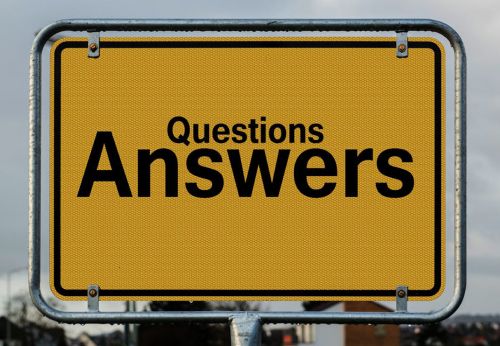Menu
Seven Questions You Should Ask Before Hiring an Eminent Domain Attorney
April 10th, 2018

Your land is yours — or so you thought. Then you received a letter from the government informing you that it is taking your land through the power of eminent domain to expand an airport, for a public utilities project, or some other use. Your first question is probably "Is this legal?" followed soon after by, "Where can I find a lawyer to help me fight this?"
The answer to your first question is yes, it is legal. State, federal, and local governments have broad powers to take private use so long as they pay the landowner fairly. This power is known as the power of eminent domain, and the process of taking the land is called land condemnation.
The answer to your second question... well, that is a little more complicated. All you have to do to find an attorney is to type your location and "eminent domain attorney" into a search engine. In seconds, you can have several options at your fingertips. But not all eminent domain attorneys are created equal. You need to find the right lawyer quickly in order to preserve your rights. Here are seven things you should ask before hiring an eminent domain attorney.
Here are seven questions to ask & why these questions are important to your case.
1. How Long Have You Been Practicing Eminent Domain Law?
Eminent domain and land condemnation law is a very complex area of practice. Your attorney's experience and knowledge make a big difference to the outcome of your case. Don't risk working with someone who recently started practicing in this area. Their lack of experience could cause them to give you inaccurate advice or to miss important aspects of the case that could get you more money for your property.
2. How Many Eminent Domain Cases Have You Handled?
An attorney may be able to truthfully say that they have been practicing eminent domain law for twenty years, but the reality may be that they've only handled three cases in that practice area during that time period. Having handled few cases is almost as bad as having handled none at all. Changes in the law might make their knowledge obsolete, or at best, not up-to-date.
3. What Percentage of Your Practice is Eminent Domain Cases?
This question helps you get at an attorney's priorities. Not only do you want an attorney with years of experience handling this type of case, you want an attorney who is actively involved in eminent domain matters on a regular basis, and at the current time. An attorney or firm who dedicates more than half of their practice to eminent domain and land condemnation is likely to be dedicated to staying current with developments in the law. If they don't, their reputation and practice will suffer. Attorneys whose eminent domain work is just an occasional sideline may not trouble themselves to stay informed and may not have the necessary experience advocating for landowners.
4. Whom Do You Represent in Eminent Domain Cases?
There are two sides in every eminent domain case: first, the landowners who want to keep using and enjoying their property, and, finally, the government (or other condemning authority) who wants to take that property for what they consider a higher use. If you are a landowner, you want an attorney who understands your position and is committed to advocating for your rights. Many attorneys have experience in eminent domain cases, but do a lot of work on behalf of the government or its agents. We represent landowners, homeowners and business owners only. If you hire an attorney who does not represent landowners exclusively in eminent domain cases, make sure he or she is as dedicated to your interests as you are.
5. What's Your Track Record in Eminent Domain Matters?
Your attorney should be able to show a record of success in getting landowners a better price for their property than the government initially offered. On a related note, ask if the attorney has been successful on appeal in eminent domain cases. An attorney who has succeeded for clients at the appellate level not only knows the law well — he or she has actually helped to shape the law.
You want an attorney that
6. How is My Case Likely to Unfold?
This question accomplishes three things:
1. It helps you understand what to expect from your case.
2. It shows you that your attorney can explain things in a way you can understand.
3. It shows you whether your attorney has enough experience to give you a general road map of the legal process. Your attorney doesn't need to be a psychic; just a person with a solid knowledge base and the ability to effectively communicate.
7. How Will You Keep Me Informed?
It is important to have an eminent domain attorney who knows what he or she is doing. Likewise, it is equally important to hire an attorney who will keep you in the loop. For many people, the biggest frustration is an attorney who is difficult to reach and not responsive to client concerns. Understanding how an attorney will keep you informed, will make the process much less stressful for you. In a nutshell, ask questions that ensure sure the attorney you hire is experienced and a good communicator. If you have further questions about what to look for in an eminent domain attorney, we invite you to contact The Odom Firm.
Categories: Eminent Domain

